Current research interests:
- Philosophy of information
- Information, Cognition and Art
Some Publications
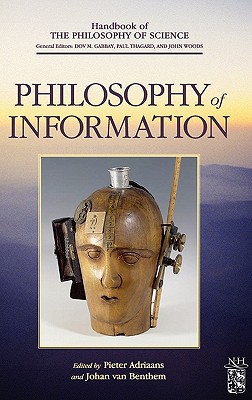
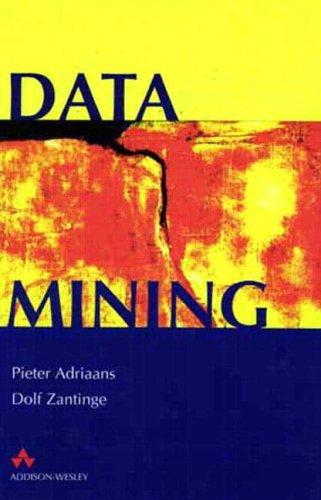
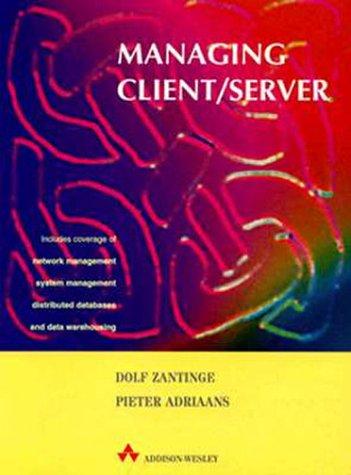
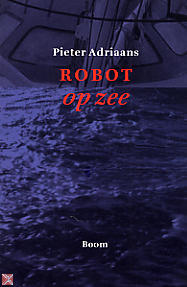
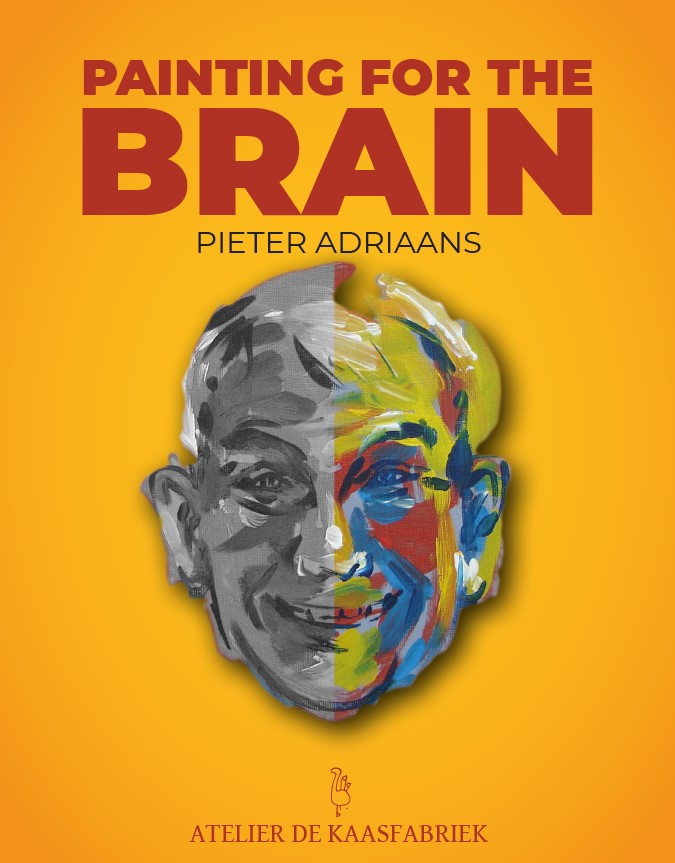






Pieter Willem Adriaans
Professor emeritus University of Amsterdam
Cais das Manadas
9800-036 Manadas
São Jorge
Azores, Portugal
www.pieter-adriaans.com
Mobile Phone +31 6 54234459, +352 964 643 610
Email: pieter@pieter-adriaans.com
Education
Undergraduate Institution(s) Kandidaats Filosofie, University of Leiden, 1979
Graduate Institution(s) Doctoraal Filosofie, University of Leiden, 1983
University of Amsterdam, Computer Science PhD, 1992
Appointments
1998-2021, Professor, Machine Learning/Artificial Intelligence,
2006-2008 Director IvI, University of Amsterdam
2003-2008 Chairman, CWI (National research center for mathematics and computer science), Amsterdam
1989-2000 Managing Director/Founder Syllogic B.V.
1985-1989, General Manager of Compu’Disc, General Manager at Info’Products Informatica Diensten
1983-1985, Software Developer, Service Manager at Buro Microsoftware
Honors and Fellowships
Advisory Board, Info-Metrics Institute, American University, Washington D.C. (2010-)
Member AcTI Netherlands Academy of Technology and Innovation (2004-2012)
Member AWT Advisory Council of Science and Technology Policy (2004-2012)
Project Leader Dutch Prognostics and Health Monitoring Joint Strike Fighter (1997-2001)
Graduate Advisors:
Prof. Dr. M.Fresco, emeritus University of Leiden
Prof. Dr. H. Philipse, University of Utrecht
Postdoctoral Sponsors:
Prof. Dr. P.E. Van Emde Boas, emeritus University of Amsterdam
Phd Students
Past:
S. Katrenko, University of Utrecht.
N. Netten, SPIE Nederland B.V.
G. de Vries, University of Amsterdam
W. Mulder, Logica CMG
F. Terpstra, Cap Gemini
P. Bloem, Vrije Universiteit Amsterdam
Short Scientific Biography
Pieter Adriaans (1955) attended the Johan de Witt Gymnasium in Dordrecht. He studied philosophy and mathematics in Leiden, the Netherlands, under Nuchelmans and van Peursen. He was research assistent of Fresco for a while with the study of the philosophical estate of the well known Dutch philosopher and poet Johan Adreas Dér Mouw 1863-1919 as a special assignment. In 1983 he graduated and started to work as a software developer, and later service manager for Buro Microsoftware. In 1985 he became general manager of Compu'Disc and later general manager of Info'Products Informatica Diensten. He has been active in research in the areas of artificial intelligence and relational database systems since 1984. He and his business partner, Dolf Zantinge, founded Syllogic B.V. in 1989. In 1992 Adriaans received a PhD in computer science at the University of Amsterdam, where he has been professor of machine learning/artificial intelligence since 1998. During his years in Syllogic he coordinated and participated in about 200 projects concerning the industrial applications of AI and machine learning techniques. Dolf and Pieter sold Syllogic to Perot Systems (www.perotsystems.com) in 1997, and stayed on as managing directors - a transaction which officially included time off for Pieter to sail the Singlehanded TransAtlantic Race 2000. For this race he developed the Syllogic Sailing Lab, the most advanced open 40 racing yacht around at that time ( www.robosail.com ). In this project he combined his skills in machine learning with his love of sailing to create a racing yacht that could learn to optimize its behavior. He was leading the VL-e (Virtual lab for e-science) project at the institute for computer science at the university of Amsterdam and participated in the Commit project.
He holds several patents on adaptive systems management and on a method for automatic composition of music using grammar induction techniques. Adriaans acted as project leader for various large international R&D projects: amongst others, the development of distributed database management software in co-operation with IBM and Prognostic and Health management for the Joint Strike Fighter. He wrote numerous articles and a number of books on topics related to both computer science and philosophy, including a book on systems analysis and books on client/server and distributed databases as well as data mining. He is editor of the Handbook of Philosophy of Information, a project of Elseviers Science Publishers and of the lemma on Information in the Stanford Encyclopedia of philosophy.
Currently he is primarily interested in Philosophy of Information and learning as data compression using the theory of Kolmogorov complexity as a guiding principle. In 2008 Adriaans decided to step down from almost all of his managerial responsibilities and dedicate his life to the combination of science and art. He currently lives on th Azores where he exploits a cultural centre (Atelier de Kaasfabriek) on the island of São Jorge with his wife Rini.
Some projects
From 1987 till 1992 a team under Adriaans' supervision created OBIS (Opleidingen Beroepen Informatie Systeem) for the SLO (Stichting Leerplan Ontwikkeling) in the Netherlands. This was a database and expert system facilitating the development of vocational training and education profiles.
As a result of his Phd research he developed the EMILE language learning algorithm and embedded it in a toolbox.
2002 - At the university of Amsterdam Adriaans developed the course ‘learning and deciding’ in which groups of graduate students cooperate with representatives from industry to solve practical problems on real life data sets using data mining techniques.
From 1997 till 2005 he supervised the Robosail (www.robosail.com) project, in which a self learning race yacht was built. The project gathered a lot of publicity was used extensively to train students.
From 2002 till 2007 he was involved as a project leader in the Vl-e project, Virtual lab for e-science. In 2008 he was co-editor of the Handbook of Philosophy of Information (Elseviers Science Publishers). From 2012 till 2017 he worked in the Commit project.
Recent Activities
Originally the chair “Learning and adaptive systems” had a strong industrial component, related to commercial machine learning and data mining activities. In the past decennium after the release of the “Handbook of Philosophy of Information” the focus of attention has shifted to cognition and philosophy of information. In short, his research program is the application of insights of algorithmic complexity theory to the analysis of issues in cognition and philosophy.
Pivotal is the lemma on information that Adriaans wrote for the Stanford Encyclopedia of Philosophy
(http://plato.stanford.edu/entries/information/).
This article gives, for the first time,
In the past decade Adriaans has been working on several open problems in philosophy of information, specifically the issue of meaningful information, and the issue of the interaction between information and computation. Some preliminary results have been published (bibliography) but the bulk of the work is still under construction(projects). The research into the definition of meaningful information by means of two-part code optimization(http://arxiv.org/abs/1203.2245) was seriously impaired by the growing concern that an a priori separation of a data set in a structural part and an ad hoc part was not mathematically feasible. In 2017 Adriaans succeeded in proving this conjecture: using generalizations of the Cantor pairing function any data set can be split into any set of parts at constant cost. The results have been published as a book chapter:
An extensive paper on the interaction of information and computation is in preparation. A preliminary version can be found at:
Apart from this work Adriaans has been involved in a number of smaller projects. Amongst others:
Background information
In the coming years Adriaans hopes to continue and combine his work as an artist, philosopher and scientist. His current practice has a strong international orientation and his output consists of scientific papers, books, paintings, exhibitions, and musical performances, courses and lectures. Only a small part of these activities fit in to an academic setting. In 2015 Adriaans and his wife Rini founded a cultural center at the island of São Jorge on the Azores. The ideal is to combine art, science and business in to a sustainable, eco-friendly, artistically rewarding and financially healthy venture.
In the past years I have worked on a number of projects but published little. Here is an overview of some of the projects:
The theory leads to many new insights and has interesting applications.
AAA Data Science, Using information theory and complex network theory to understand the structure of very large knowledge graphs, with Frank van Harmelen.